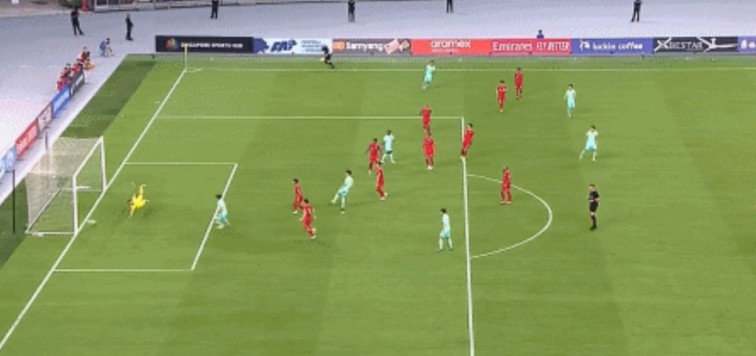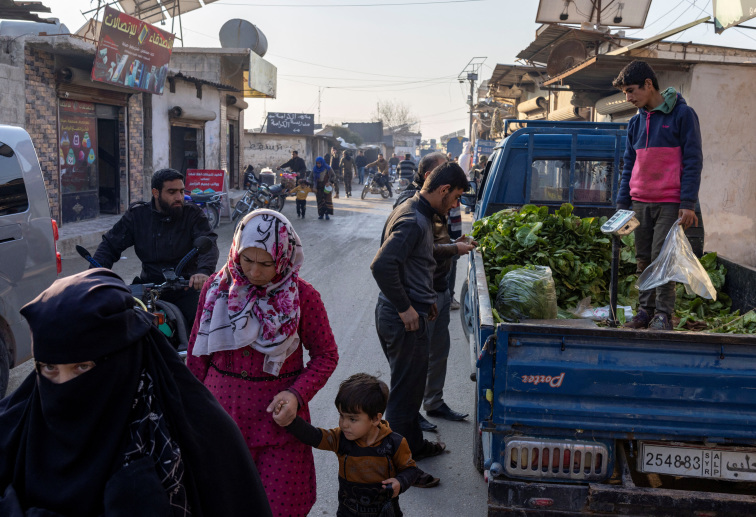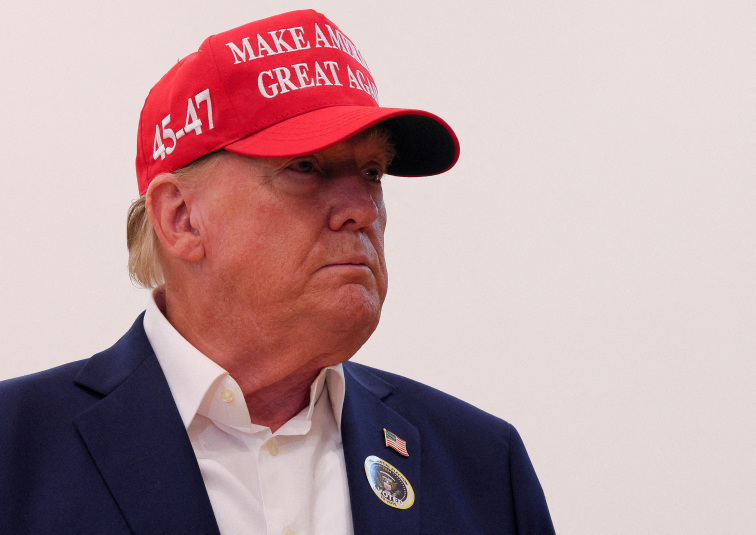Illustration: On March 14, 2011, employees of an Industrial and Commercial Bank of China (ICBC) branch in Huaibei City, Anhui Province, are seen handling cash. (VCG/Getty Images)
[People News] Within the week starting December 10, over ten "tigers" (high-ranking officials) and "giant flies" (low-ranking but highly corrupt officials) were dealt with by the CCP, involving cases ranging from tens of millions to tens of billions in illicit funds (all in "the people's currency," or renminbi). For instance, on December 17, Li Jianping, the former Party Secretary of the Hohhot Economic and Technological Development Zone, was executed for amassing a fortune of 3 billion yuan. On the same day, Xiong Xue, the former Vice Mayor of Chongqing, was sentenced to a suspended death penalty for illegally acquiring 148 million yuan. Earlier in the week, on December 12, Gou Zhongwen, a former member of the CPPCC Standing Committee and deputy director of its Ethnic and Religious Affairs Committee, was expelled from the Party and investigated. On the same day, Han Yong, former Chair of the Shaanxi Provincial Political Consultative Conference, was prosecuted for taking bribes of over 261 million yuan. On December 13, Li Tie, the former head coach of China's national men's soccer team, was convicted of accepting over 50 million yuan in bribes. On December 11, Li Pengxin, the former Secretary of Qinghai Province's Political and Legal Affairs Committee, was charged with illegally accepting an exceptionally large amount of money and valuables.
With so much astronomical wealth involved, one wonders: how did these corrupt officials hide their money before being caught? A review of their methods reveals that these officials "creatively applied" their "ingenuity," devising elaborate and unexpected ways to conceal their wealth. From cold wallets, hidden compartments in walls, garden ponds, treadmills, fish and poultry stomachs, secret lovers’ homes, to specially built hideouts, their methods are as varied as they are astonishing, leaving people utterly amazed at their imagination and resourcefulness.
Cold Wallets
This represents a new, high-tech, highly secure, and sophisticated method for corrupt officials at the deputy department level and above within the CCP to conceal illicit gains. By heavily utilizing virtual currencies, they employ "cold wallets" for power-money transactions. A "cold wallet" refers to a cryptocurrency wallet stored on an offline device. This method is not only difficult to detect but also makes it remarkably easy to transfer money abroad.
An article in Theory and Reform, a journal published by the Sichuan Provincial Party School of the CCP, pointed out that this new form of corruption has "evasive capabilities and escape potential" against existing anti-corruption measures. Corrupt officials now rely on innovative financial products such as bonds, shadow banking, IPOs, internet finance, off-balance-sheet operations, structured products, and creative credit marketing. They also use methods like public listings, asset swaps, private placements, options, proxy holdings, and PE-related corruption. Additionally, virtual currency corruption and laundering via decentralized finance protocols are becoming common. Virtual currency transactions are one way cold wallets are utilized.
For example, Li Jianping, the Party Secretary of the Hohhot Economic and Technological Development Zone, used several methods to amass wealth, including shell companies. Part of his illicit gains was reportedly stored in cryptocurrency wallets managed by his subordinates.
Hidden Compartments in Walls
In the corruption case of Zhang Quan, former Deputy Director of the Hebei Provincial Department of Transportation, investigators discovered a concealed passage when they moved a radiator in the corner of his house. Surrounding walls were hollow, and when inspectors broke through the cement walls with tools, they uncovered a tightly wrapped kraft paper package secured with transparent tape. Inside were various gold and platinum jewelry items.
Similarly, in the case of Yao Jianhua, former Deputy District Chief of Tanggu District in Tianjin, investigators found a large stash of gold ornaments, renminbi, US dollars, and deposit slips hidden in the layers of screen doors, discarded cardboard boxes, and cement-sealed chimney wall cavities.
Under Trees and in Flower Beds
According to reports from mainland Chinese media, Xu Jianyi, the former Party Secretary and Chairman of FAW Group, was accused of hiding over 12 million yuan in bribes. Investigators searching his home discovered that he had hidden his collection of watches and gold bars in several tea tins, which he then buried beneath a large tree in his yard.
In another case, Yuan Fengjian, a deputy county chief of Mengyin County in Shandong Province, deposited over 5.58 million yuan of public funds into 37 banks across more than 100 transactions. He stored the deposit books and related documents in a tea tin, which he buried in a flower bed.
Inside Treadmills
Mainland media reported that Sun Ying, the former Director of the Hainan Provincial Market Supervision Administration, was accused of illegally accepting assets worth over 64.6 million yuan. Notably, she hid gold bars inside a treadmill—a method deemed highly inventive.
Sun Ying owned numerous properties, one of which was dubbed a "golden house" by investigators. Inside, what appeared to be an ordinary treadmill was found to contain blocks of gold meticulously wrapped and concealed. These gold bars, melted and recast before being hidden, were valued at over 6.66 million yuan.
In another instance, Cao Yu, the former President of Hainan Tropical Ocean University, hid 10.09 million yuan in bribes in six oversized suitcases stored in a commercial vehicle.
Gold Bars and Jewelry Inside Poultry and Fish
An anti-corruption education film revealed the case of Jiang Xunbo, former Deputy Secretary of the CPC Quzhou Municipal Committee and Secretary of the Political and Legal Affairs Committee. Jiang, who accepted 7.23 million yuan in bribes, attempted to destroy evidence by categorizing and wrapping the bribery-related shopping cards before burying them in the bamboo grove outside his home. Moreover, Jiang concealed gold bars and jewelry inside the stomachs of chickens, ducks, and fish, which he then froze in his refrigerator.
Hollow Tree Trunks, Ash Piles, and Septic Pits
Xu Qiyao, the former Director of the Jiangsu Provincial Department of Construction, took nearly 4 million yuan in bribes. He transferred some of the cash to his sister-in-law and moved the rest to his wife’s family home in Xuzhou. The money was hidden in various locations: wrapped in layers of plastic and stuffed into tree hollows, ash piles, rice fields, and under roof tiles. Some of it was even stashed inside a septic pit.
Special Villas and "Cash Houses"
Li Youcan, former Deputy Director of the Hebei Provincial Department of Foreign Trade and Economic Cooperation, went to great lengths to hide his illicit gains. He purchased an inconspicuous villa in Beijing specifically to store cash. He also acquired a Volkswagen Golf to use as a "cash transport vehicle." At its peak, the cash filled 16 suitcases and required three trips to transport it in the car. Li reportedly derived immense pleasure from stacking piles of cash on the floor, counting them repeatedly, and "quietly admiring" the view.
He was eventually sentenced to death.
Similarly, Luo Yaoxing, former Director of the Immunization Planning Office at the Guangdong Provincial Center for Disease Control and Prevention, had so much stolen money that it could no longer fit in his home. He rented a luxury apartment solely to store cash.
To maximize storage capacity and minimize risk, Luo took precautions like bundling the money in plastic bags and laying moisture-proof paper and desiccants on the floor. Despite these efforts, nearly 12 million yuan eventually became moldy.










News magazine bootstrap themes!
I like this themes, fast loading and look profesional
Thank you Carlos!
You're welcome!
Please support me with give positive rating!
Yes Sure!